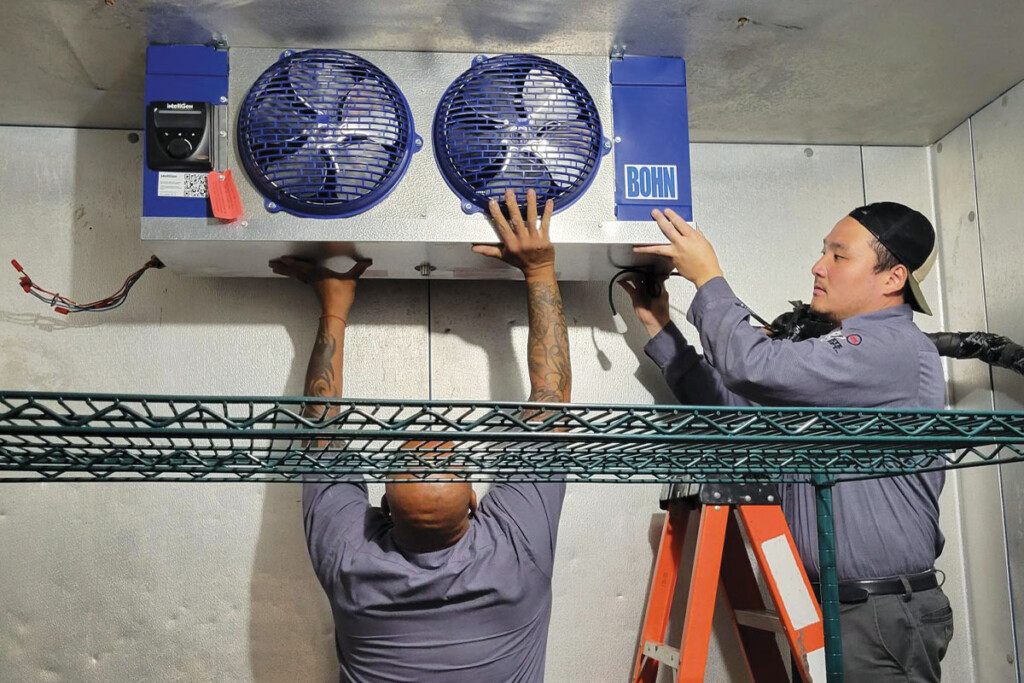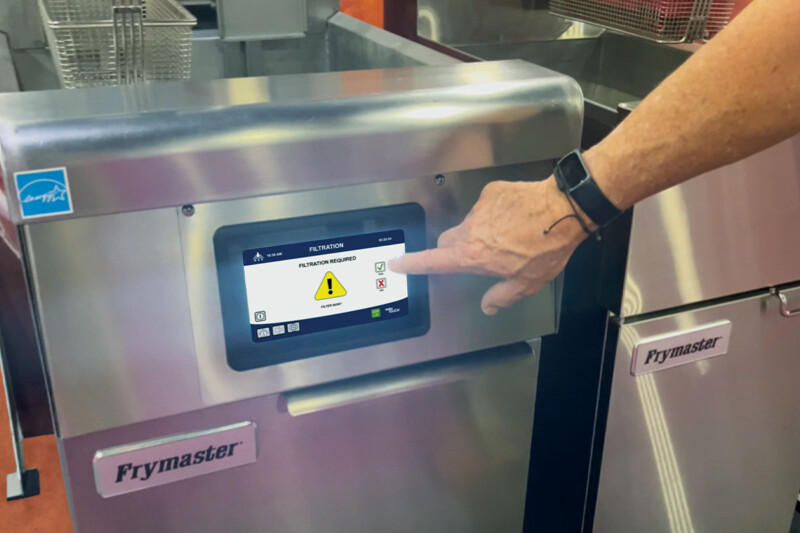Maintenance: How to Stay Reliably Cool
With a tech consistently on the case for some of your most-essential equipment, you gain assurance and then some.

It is Friday afternoon, and the kitchen is busy preparing for the dinner rush. Without warning, a loud knock emanates from the depths of the walk-in cooler. A bang reverberates throughout the kitchen, and the knocking stops. Within minutes, the cooler’s thermometer shows rising temperatures that rapidly climb into the danger zone where harmful bacteria thrive. The kitchen has no choice but to shut down until a service tech can come out. Disappointed customers grumble as management scrambles for a solution.
Donald Jones Sr., refrigeration service manager for the D.C., Maryland and Virginia branches of EMR, has dealt with his fair share of emergency calls akin to the above and says they often take priority due to the food safety risks attached.
The best way to prevent such breakdowns is regular service; chef Brock Ormand, who runs several busy kitchens for Mercy Ridge, a large care facility in Maryland, can attest to this.
“In my career, some of the worst-case scenarios I have seen have been in privately owned restaurants that can’t afford a service plan,” Ormand says. “If the wrong piece of equipment goes down, it can take your entire restaurant offline.”
At Mercy Ridge, Ormand says he has never had refrigeration equipment go down. The secret? His kitchen has a service plan and books a service tech every four months—in the spring before temperatures begin to climb, again at the end of summer, then once more toward the end of the year—to keep select equipment in peak shape. The facility’s plan covers refrigeration equipment and ice machines, as well as dishwashing equipment.
For cold-side equipment, Jones says some planned maintenance can be done in-house, such as ensuring the condenser coils are clean. Shining a flashlight through the coils will indicate if the equipment needs service. “If light can’t get through, neither can air,” Jones says.
In larger kitchens, it makes sense to schedule services rather than rely on employees who are not always trained to perform the services.
Jones says cold-side equipment PM should include the following:
- Inspect, clean and degrease condenser and evaporator coils
- Check and adjust thermostats
- Inspect and replace door seals
- Check compressor motors
- Clean drains and catch-trays
- Check defrost timer
- Inspect wiring for damage
- Check for rust, corrosion or damage to the unit
- Inspect the ice machine for mold, bacteria and algae
- Replace water filters and inspect feed lines for leaks or damage
- Sanitize the bin and clean the ice machine evaporator plate
- Inform customer about replacing aging equipment
Jones says failure to properly maintain cold-side equipment can result in damage that may require a full replacement, so following proper maintenance procedures is money in the bank.

Photo by Scott Rodgerson on Unsplash.
ICE MACHINE INTEL
Jones says many restaurants do not perform cleaning procedures often enough or do not use the appropriate cleaner. Mold and algae can grow at freezing temperatures and cause a wide range of illnesses. An ice machine should be cleaned according to the manufacturer’s recommendations, which varies by unit type. Kitchens that brew beer or bake bread should clean the unit more often than recommended since airborne yeast is a major cause of bacterial growth in ice machines.
Jones says it’s simple to find out if an ice machine is clean. “Fill a glass with ice and set it on the counter to melt,” Jones explains. “If you see black specks in the bottom of the glass, the ice machine is dangerously dirty.”
RELATED CONTENT
- Advertisement -
- Advertisement -
- Advertisement -
TRENDING NOW
- Advertisement -
- Advertisement -
- Advertisement -


